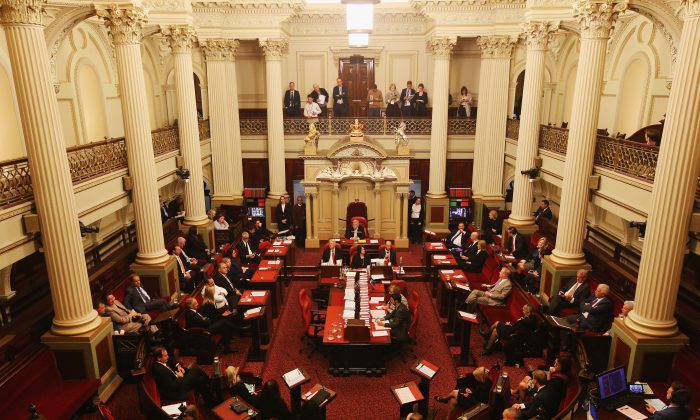
A current elected official in Australia has revealed he spent thousands of dollars on banned fraudulent activities while running a branch office for the Australian Labor Party (ALP).
Rick Garotti, the current mayor of Banyule in Melbourne, told the Independent Broad-based Anti-corruption Commission (IBAC) on Oct. 18 he spent an estimated $15,000 on “branch-stacking” activities.
revelations come as part of IBAC’s wide-ranging investigation into “serious corrupt conduct” and the misuse of public money for “party-political work or other improper purposes.”
Currently, it is focusing on branch-stacking and whether public money had been used to fund such activities—which includes the hiring of staff for such work.
Branch stacking—or the practice of recruiting members to a political party (sometimes by paying them)—is designed to influence the outcome of preselecting candidates. One of the main motivations for doing so is the competition for influence between rival factions—in this case, the Moderate and Socialist Left factions in Victoria.
Australian political parties choose representatives to stand for office via a preselection system that relies on members in each electoral branch voting for their preferred candidate.
While not illegal, the practice, however, is banned under ALP rules.
Garotti revealed to IBAC that he himself was involved in branch-stacking for several years spending over $15,000 over a five to the six-year period at the ALP’s Heidelberg branch located in Melbourne’s north-east.
Garotti said he spent around $5,000 a year during his time at Heidelberg, with $2,000 going towards the running of the branch and hosting events, and $3,000 on memberships.
He also alleged that upper house member of Parliament, Nazih Elasmar, had also paid the membership fees of associates and that Dr. Hussein Haraco, secretary of the Somali Australian Council of Victoria, had spent a “couple of thousand dollars” annually on memberships during the same time. As a result, individuals from the Somali community made up a “significant majority” of the branch.
Haraco was employed after Garotti recommended him to Victorian state MP Adem Somyurek saying he “needed to be looked after.”
mayor also agreed with the assertion from IBAC Counsel Chris Carr S.C. that the roles of elected officers within branch offices were a “form of currency to be deployed by MPs” to reward factional allies.
Garotti also alleged that Nazir Elasmar, the president of Victoria’s Legislative Council, was paying memberships at the ALP’s Darebin branch. He conceded he did not have evidence, but “assumed (Elasmar) had been covering the costs of members in that branch.”
He also said Elasmar’s daughter worked for state MP Marlene Kairouz, and wife for the federal MP of Cooper.
Elasmar is the second state-level MP to be named in the IBAC hearings following Luke Donnellan, who resigned from Cabinet just hours into day one of the hearings on Oct. 11.
Donnellan and Somyurek are members of the Moderate faction of Victoria’s ALP.
Federal ALP MP for Holt, Anthony Byrne, who fronted the inquiry on the first day, claimed the Socialist Left faction was also involved in branch-stacking.
State Premier Dan Andrews triggered the IBAC investigation after a special report by 60 Minutes and Age exposed the extent of the practice in the state.
Following its publication, MPs Somyurek, Marlene Kairouz, and Robin Scott resigned from the cabinet but remained on the backbench while denying the allegations.
Pezou : Australian Public Official Spent $15,000 on Banned Electoral Practices: Anti-Corruption Hearing Reveals